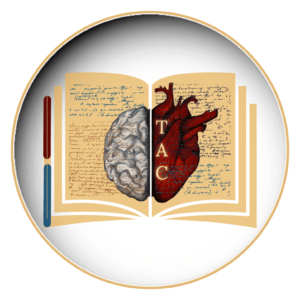

Chest Pain During Pregnancy: What You Need to Know
Chest pain during pregnancy is a relatively common symptom and can be caused by a variety of factors, ranging from normal physiological changes to more serious conditions requiring medical attention. While chest pain during pregnancy is often due to minor causes, it’s important to pay attention to your symptoms and consult your doctor if you have any concerns.
Common Causes Of Chest Pain During Pregnancy
1. Hormonal Changes: During pregnancy, hormone levels, such as progesterone, increase to support the growing baby. This can cause the muscles of the esophagus and digestive tract to relax, leading to symptoms such as acid reflux and heartburn, which can cause chest pain.
Symptoms: Burning or hot sensation in the center of the chest, especially after meals.
Remedy: Eat small, frequent meals, avoid spicy and fatty foods, and maintain an upright position after meals.
2. Gastroesophageal Reflux And Heartburn: Acid reflux is common during pregnancy, especially in the second and third trimesters, due to increased pressure from the uterus on the abdomen, which pushes gastric juices into the esophagus.
Symptoms: Burning sensation and pain in the center of the chest that may worsen when bending or lying down.
Remedy: Avoid large meals, do not lie down immediately after eating, and drink water in small sips during meals.
3. Physical Changes and Uterine Pressure: As the uterus grows, pressure on the diaphragm and rib cage increases, which can lead to chest tightness and pain. This pressure may be more pronounced in the later stages of pregnancy.
Symptoms: Feeling of tightness in the chest, difficulty breathing deeply.
Remedy: Maintain correct posture, sleep on your side and do breathing exercises to relieve pressure.
4. Increased Blood Volume and Accelerated Heartbeat: During pregnancy, blood volume increases to deliver oxygen and nutrients to the fetus. This can cause the heart to work harder and lead to palpitations or chest pain, especially if the mother is feeling anxious or stressed.
Symptoms: Rapid heartbeat, palpitations, mild chest pain or pressure.
Remedy: Practice relaxation techniques such as deep breathing, prenatal yoga and reduce stress levels.
5. Anxiety and Stress: Pregnancy can bring on some anxiety and stress, which can contribute to muscle tension and chest pain. Anxiety can also cause palpitations and increased breathing, which in turn can lead to chest pain or discomfort.
Symptoms: Feeling of tightness in the chest, rapid heartbeat, labored breathing.
Remedy: Breathing and relaxation exercises, emotional support, and, if necessary, consultation with a mental health professional.
6. Rib And Chest Pain: Rib pain can occur due to pressure from the uterus on the internal organs and rib cage, especially during the third trimester.
Symptoms: Sharp or dull pain in the upper chest or sides, which may increase with movement or deep breathing.
Remedy: Avoid lifting weights, use a lumbar support to improve posture, and stretch to relieve muscle tension.
7. Mastitis and Breast Pain: During pregnancy, your breasts increase in size in preparation for breastfeeding, which can cause pain or tenderness that radiates to your chest.
Symptoms: Pain or tenderness in the breasts, which may extend to the chest, and increased sensitivity.
Remedy: Use supportive bras, apply warm compresses, and gently massage your breasts to relieve tightness.
Some conditions that require immediate medical attention
- Pulmonary Embolism: A blood clot in the lungs can cause severe chest pain and difficulty breathing.
- Preeclampsia: A condition characterised by high blood pressure that can cause chest pain, especially when accompanied by headaches and swelling.
- Heart Problems: Although rare, heart problems can occur during pregnancy. It’s important to seek immediate medical attention if any concerning symptoms occur.
Tips For Managing Chest Pain During Pregnancy
1. Eat Small, Frequent Meals: Avoiding large meals can reduce the risk of reflux and heartburn, which are common causes of chest pain. Opt for light, frequent meals that are rich in fiber and nutrients.
2. Maintain Good Posture: Correct posture reduces pressure on the rib cage and diaphragm, improving breathing and reducing the risk of chest pain.
3. Avoid Irritating Foods: Certain foods, such as spicy, fried, or high-fat foods, can increase reflux. Choose easily digestible foods and limit your intake of carbonated drinks and caffeine.
4. Practice Deep Breathing: Deep breathing and relaxation techniques help reduce stress and anxiety, also decreasing the possibility of palpitations and chest pain.
5. Rest: Rest is important for overall well-being and to avoid excessive strain on the heart and digestive system, especially in the third trimester.
Conclusion
While most chest pain during pregnancy is benign, it’s important to know when to seek medical attention. Call your doctor immediately or go to the emergency room if the pain is accompanied by:
- Chest pain that is severe, persistent, or extends to the left arm, back, or jaw.
- Feeling of tightness or heaviness in the chest.
- Shortness of breath or difficulty breathing that does not improve with rest.
- Irregular heartbeat or intense palpitations.
- Sweating, nausea, or dizziness.









